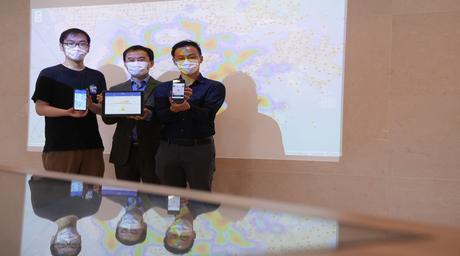
In response to the need for indoor urban agriculture solutions, the National University of Singapore (NUS) has officially open the Sustainable Urban Agriculture Research Center (SUrF) to bring together the diverse expertise of senior researchers from across the University to develop new science and technology solutions for urban agriculture in the country.
"NUS is committed to making meaningful contributions to Singapore's food policy agenda, working with public sector and industry partners. Our goal is to create a globally competitive research program in sustainable urban agriculture that integrates smart farming solutions for various stakeholders," said Professor Tan Eng Chye, President of NUS.
A core team drawn from the fields of science, engineering and computing constitutes SURF, a research organization that focuses on sustainable urban agriculture. This exclusive group of researchers has experience in a variety of topics, including plant science, genomics and gene editing, microbiomes, food science, materials and polymer science, sensor technologies , data science and artificial intelligence (AI) for indoor agriculture.
The team will launch multidisciplinary programs to build a sustainable, cross-border platform to improve pre- and post-harvest plant performance, including crop yield, nutrient profile and safety assurance.
A new facility for the Center, with approximately 200 square meters of indoor plant growth space for research, is expected to be completed in early 2023.
There will be three growth rooms and an additional precision growth room where environmental parameters such as temperature and light spectrum can be modified to promote better plant growth with potentially enhanced phytonutrients.
PlantEye, a non-destructive phenotyping device for monitoring plant development and recording plant health, as well as numerous analytical tools for studying nutrient content, will be part of the research equipment.
The Center will also have access to state-of-the-art NUS laboratories for molecular genetics research, including gene editing.
Additionally, SURF research focuses on three stages of food production: before, during and after production. The Centre's objective is to offer solutions to producers and to work with local businesses to meet their needs.
Post-harvest interventions can also help improve the nutritional value and microbial safety of foods. According to preliminary results, LED lighting not only eliminates spoilage organisms, but also increases the nutritional quality of green crops.
The team's next steps will be to develop LED lighting technology specifically for green vegetables commonly consumed in Singapore, as well as test their technique under simulated retail conditions.
In addition, there are 16 Principal Investigators in SURF from the NUS Departments of Biological Sciences, Food Science and Technology, Biomedical Engineering, Electrical and Computer Engineering, and Computer Science. They supervise a dozen research projects.
One such project is trying to make it easier to grow leafy greens in cities. Most crops grown on indoor farms are not suitable for controlled environments because they were grown in fields. This makes growing plants indoors inefficient and unsustainable, with low yield.
Researchers are investigating new ways to breed plants, such as genomic selection and gene editing, to create leafy vegetable varieties with traits that perform well in controlled environments. This is done to improve the quality and productivity of agriculture.
On the other hand, the team made bio-inoculants of bacteria that help plants grow. These can be used in different agricultural situations, for example when plants are grown in soil, peat or coconut fiber, or when hydroponic systems are used.
This could help crops grow better and be more resilient without harming the environment. It could also reduce the need for chemical fertilizers.

